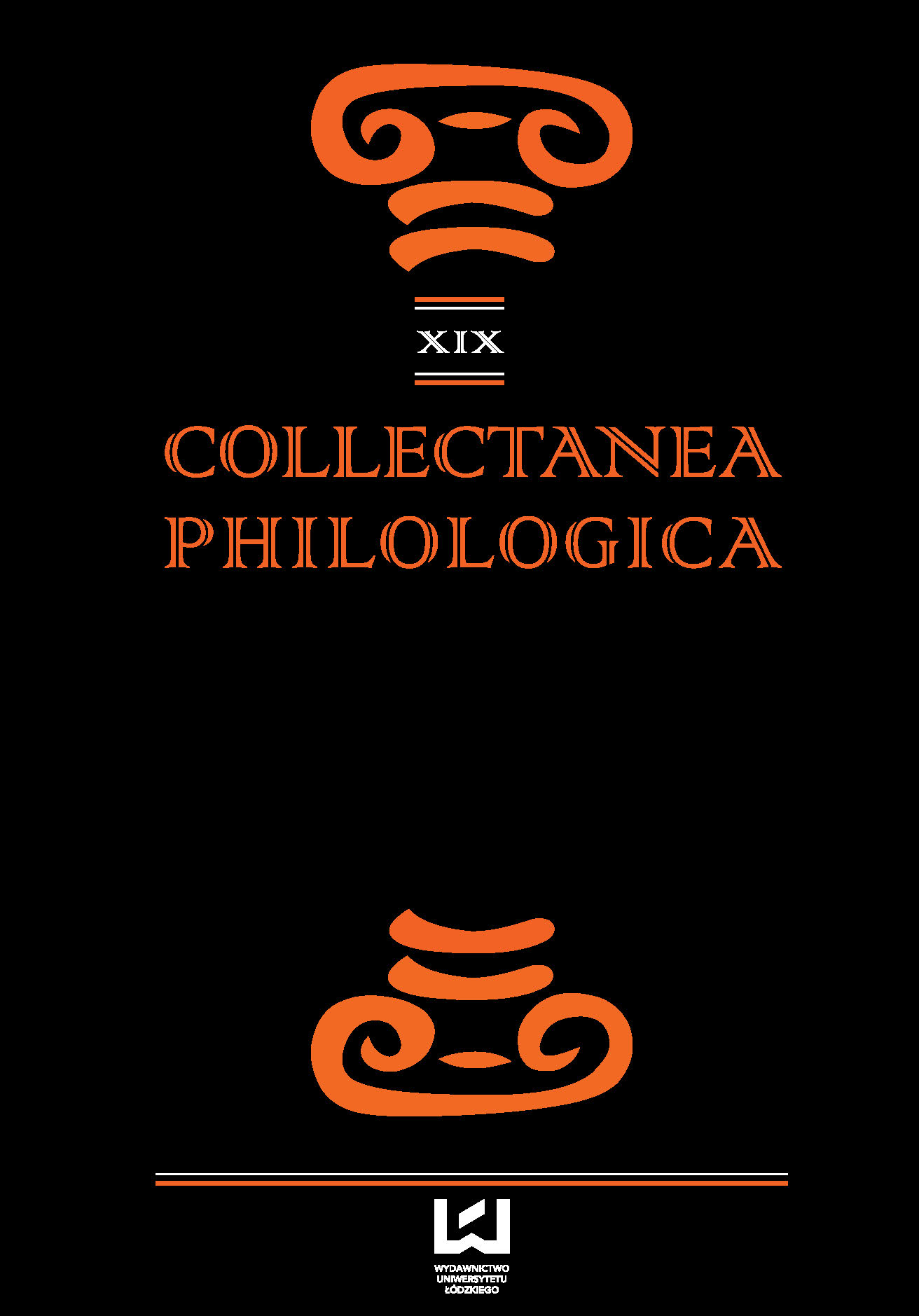The Political Involvement of Myth in Its Stage Adapatations
DOI:
https://doi.org/10.18778/1733-0319.19.05Słowa kluczowe:
mythe antique, tragedie grécque, postmodernisme, théâtreAbstrakt
Ancient myths from the Mediterranean Culture often become a language used to express current social and political anxieties. In the contemporary theatre ancient myths are deconstructed and subverted according to the postmodern dialogue with tradition. Aesthetic changes are accompanied by the ideological modifications. This obviously crisis position of myth is associated with the method of de-contextualization when a mythical plot or just a mythical character is involved in the (post)modern political background. This paper is to analyse three theatre productions from Polish theatre (Iphigenia by Antonina Grzegorzewska, 2008; Oresteia by Michał Zadara, 2010; Antigone by Marcin Liber, 2013) which adapt the most political ancient myths of Atreides and Labdacides’ families. Authors will present the ancient literary context of these myths (Sophocles, Euripides, Aeschylus) and compare it with the contemporary stage adaptations. Political issues which will be discussed concern 1) global terrorism threat; 2) communism; 3) political usage of dead heroes and enemies – post-memory; 4) wars in Iraq and Afghanistan; 5) Nazi genocide; 6) media management of death. All these current problems constitute a deconstructed background for ancient myths and authors will consider whether this procedure creates an empty mythical mask for performance or, conversely, it enriches a source meaning of ancient myth.
Bibliografia
Benedetto di, V. (1971). Euripide: teatro e società. Torino: Giulio Einaudi Editore.
Google Scholar
Chodkowski, R. (2004). „Wstęp’. In Sofokles, Antygona, Warszawa: Prószyński i Spółka.
Google Scholar
Chodkowski, R.. (1994). Ajschylos i jego tragedie. Lublin: TN KUL.
Google Scholar
Coleridge, E.P. (transl.) (1891). The Plays of Euripides. Volume II. London: George Bell and Sons.
Google Scholar
Czerwińska, J. (2011). „Co nam zostało z teatru antycznego?’ In Dylematy Dramatu i Teatru u progu XXI wieku, ed. by Anna Podstawka, Agnieszka Jarosz, 168–188. Lublin: Wydawnictwo Katolickiego Uniwersytetu Lubelskiego.
Google Scholar
Czerwińska, J. (2013). Innowacje mitologiczne i dramaturgiczne Eurypidesa. Tragedia. Tragikomedia, Łódź: Wydawnictwo UŁ.
Google Scholar
Garvie, A.F. (1986). ‘Introduction’. In Choephori by Aeschylus, IX-X. Oxford: Oxford University Press.
Google Scholar
Gavran, M. (1983). Creon’s Antigone http://www.mgavran2.t-com.hr/antigone_complete.php (accessed 09.11.2014)
Google Scholar
Guardini, M.L. (1987). ‘Introduction’. In Il mito di Elena. Testi di Euripide e Isocrate, ed. by Maria Lia Guardini. T.: Edizioni Canova Treviso.
Google Scholar
Hirsch, M. (2008). ‘The Generation of Postmemory’. Poetics Today 29, 1: 103–128
Google Scholar
Jebb, R. (transl.) (1891). The Antigone of Sophocles. Cambridge: Cambridge University Press.
Google Scholar
Kitto, H.D.F. (2013). Greek Tragedy. Oxford: Routledge.
Google Scholar
Liddell H.G., and Robert Scott (eds.) (1883). Greek-English Lexicon. New York: Harper and Brothers.
Google Scholar
Murray, R. (transl.) (1920). The Agamemnon of Aeschylus. London: Oxford University Press.
Google Scholar
Neschke, A. (1986). ‘L’Orestie de Stesichore et la tradition littéraire du mythe des Atrides avant Eschyle’. L’antiquité classique 55: 283–301.
Google Scholar
Suzuki, T. ‘The Promise of Theatre’: http://www.scot-suzukicompany.com/en/philosophy.php (accessed 04.10.2016).
Google Scholar
Willett, J. (1978). The Theatre of Erwin Piscator: Half a Century of Politics in the Theatre. London: Methuen.
Google Scholar












